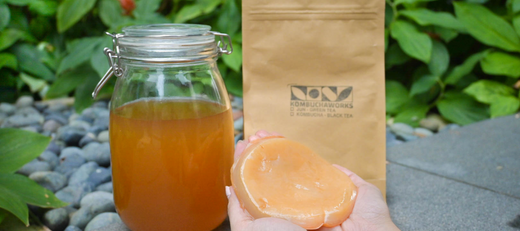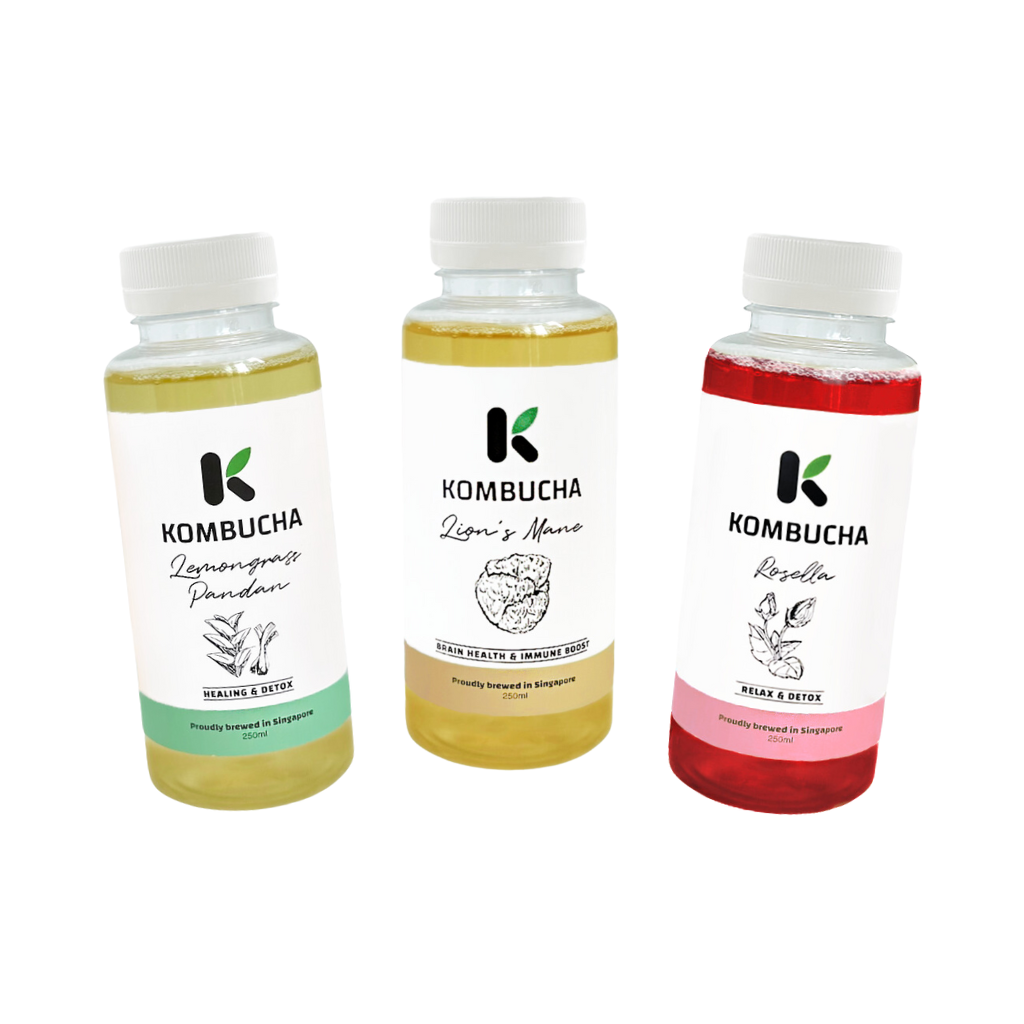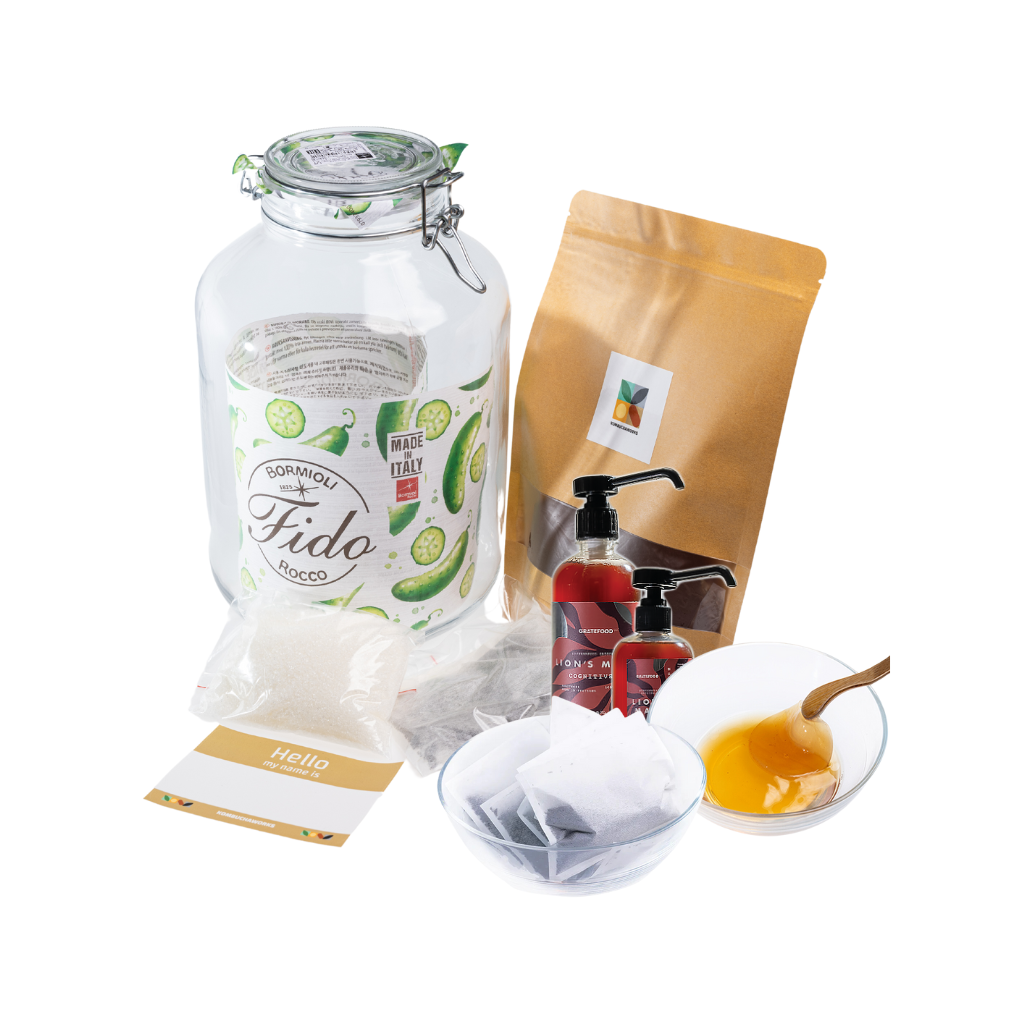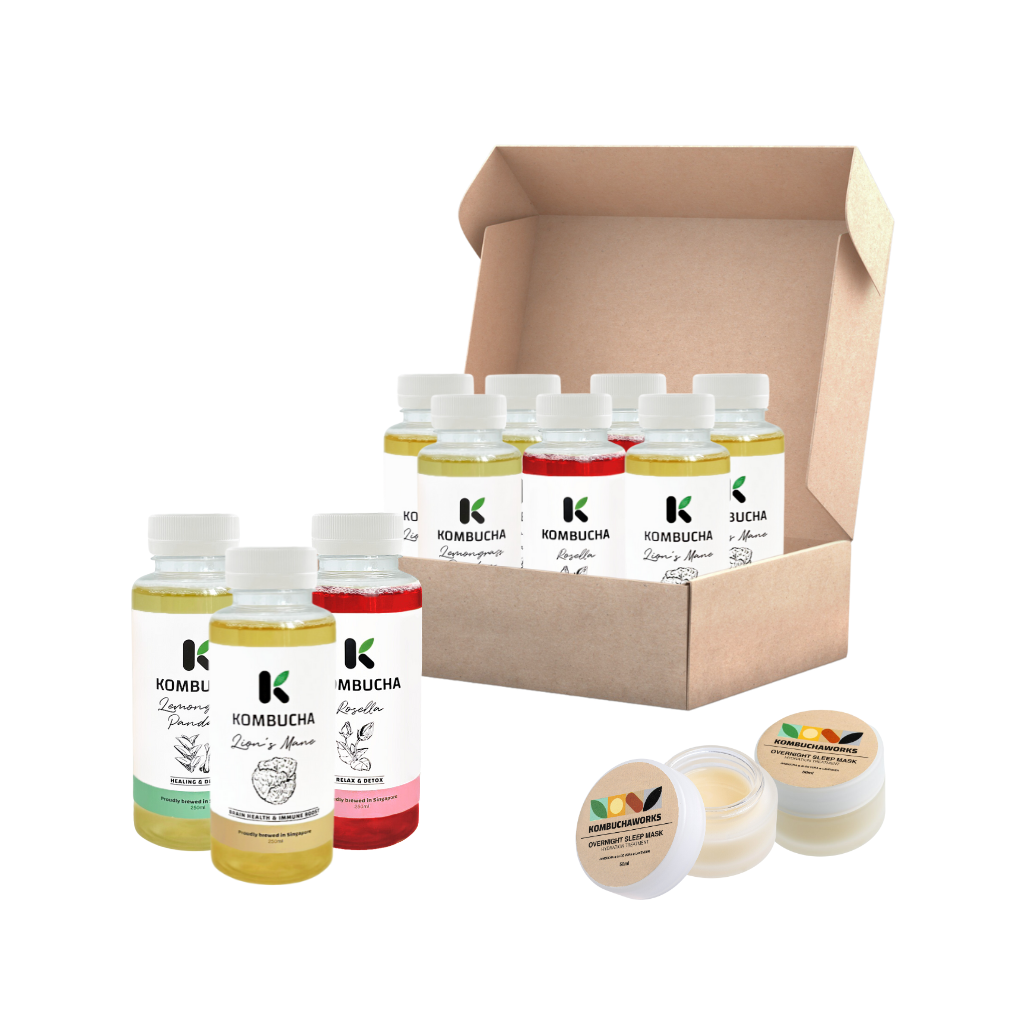If you've been brewing kombucha for a while, you know that the SCOBY grows and multiplies with every batch. But since you only need a few to ferment enough for your family, discarding the extras seems wasteful.
Instead of throwing them away, why not repurpose your kombucha and SCOBY for a greener garden? Kombucha and its SCOBY are becoming popular in sustainable gardening as natural fertilizers, offering a simple secret to healthier plants and thriving soil. 🌱
Why Use Kombucha and SCOBY as a Fertilizer?
Kombucha is rich in beneficial bacteria, organic acids, and nutrients that are essential for plant growth. SCOBY, the leftover culture from brewing kombucha, also contains these nutrients and helps boost soil microorganisms, improving soil health and promoting stronger plants. Together, they create a natural and eco-friendly fertilizer for your garden. Here are some key benefits for your green friends:
- Helps Soil Microbes: Kombucha and SCOBY add beneficial microbes to your soil, helping it stay healthy and rich in nutrients.
- Keeps Pests Away: The acidity and microbes in kombucha may help keep certain pests away.
- Improves Soil Structure: Adding kombucha and SCOBY improves the soil's ability to hold water and nutrients, helping your plants grow better.
How to Apply Kombucha in Your Garden

|
Kombucha as Liquid Fertilizer:
|
|
Using SCOBY:
|
|
It's important to keep a few things in mind when using kombucha and SCOBY in your garden. First, regularly check your soil's pH, as kombucha can make it more acidic. Some plants prefer acidic soil, but others might not. Also, be sure to use kombucha and SCOBY in moderation—too much can harm your plants. Applying them sparingly will help maintain a healthy and balanced garden.
By repurposing kombucha and SCOBY, you’re not only promoting healthier plants but also contributing to a greener, more sustainable environment. If you're interested in brewing your own kombucha at home, why not try our DIY Kits? They're a great way to start your kombucha brewing journey and provide you with all the tools you need to make your own batches, while also creating the perfect compost material for your garden. Give it a try and watch both your kombucha and garden thrive naturally! 🪴






